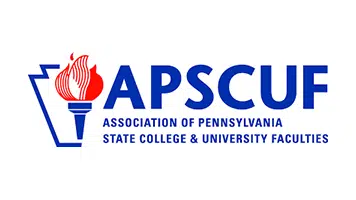At last week’s State System Board of Governor’s meeting, APSCUF executive council member Mario Macjen cautioned against considering the consolidation of six universities into two three years ago “a success.”
Macjen is a professor at one of the consolidated schools, PennWest. He told the board he is not arguing for reversing the consolidation, but said the System must pay attention to the lessons the move provided, many of them related to the rushed way in which consolidation happened, which he described, using the words of a former university president, as “building an airplane while flying it.”
Macjen said the consolidation process was “exhausting” on the faculty and “there were many better alternatives in 2021” when the decision was made to consolidate the schools. He called for objectivity in assessing its impacts.
Here is the transcript of Macjen’s comments:
Source: apscuf.org
Chair Shapira, Chancellor Fiorentino, governors, presidents, and guests,
My name is Mario Majcen. I am an at-large member of the APSCUF executive council and a professor at PennWest University. I also have served as California chapter president since 2022.
In my comments, I would like to reflect on statements that I read in the media about the ongoing consolidation of our universities that took effect in 2022. In those statements, the consolidation is portrayed as a success — and as a path that other systems of higher education should follow.
We are in the third year of this consolidation. We are not done, but we are getting close. And I can tell you from personal experience and from the data on enrollment, on impacts on student experience, and from the faculty perspective that there were many better alternatives in 2021 when this board decided to consolidate universities.
For the last four years since the decision was made, the best phrase to describe the consolidation is “building an airplane while flying it.” Not my words; this description comes from one of the four university presidents that I served under in the past four years, who did her best to keep our recently consolidated airplane from crashing to the ground.
I am not here to argue for reversing the consolidation. I am just asking for objectivity in assessing its impacts.
The consolidation was done without a detailed implementation plan, but with just a concept which two newly formed universities had to figure out how to implement while still doing everything else that needs to be done to serve our students in the best possible way and provide the high-quality education that they expect and deserve.
Hindsight is 20/20, they say. I wouldn’t know; my sight hasn’t been that good in a few decades. But IF the hindsight is indeed 20/20, then let’s learn lessons from this experience and not glorify it as a success.
Our faculty, staff, and administrators worked on new policies, new curriculum, new procedures. Only to redo them. And sometimes again. It was an exhausting process that seemed to never end.
And now that we finally stabilized enrollment, we will be working on revising curriculum again, as we consider changes to our academic arrays.
As a professor and a former first-generation student, I am only asking for this: Give faculty time to focus on our students; give us time to work on professional development and learning new skills to transfer to our students; give us time for designing better and better lectures, labs, and hands-on activities for our students; and give us equipment and technology to deliver education in the best possible way for our students.
As you do that, please reflect on PASSHE being a system. Is PASSHE really a system, if students who pay the same tuition get very different experiences and opportunities, depending on which university they attend? Or are we just calling ourselves a system because of a few dozen Board of Governors policies that apply at all 10 universities with very different student experiences?
Regardless of any challenges that lie ahead, the faculty will, as always, be there for our students to ensure their success.
Thank you.






